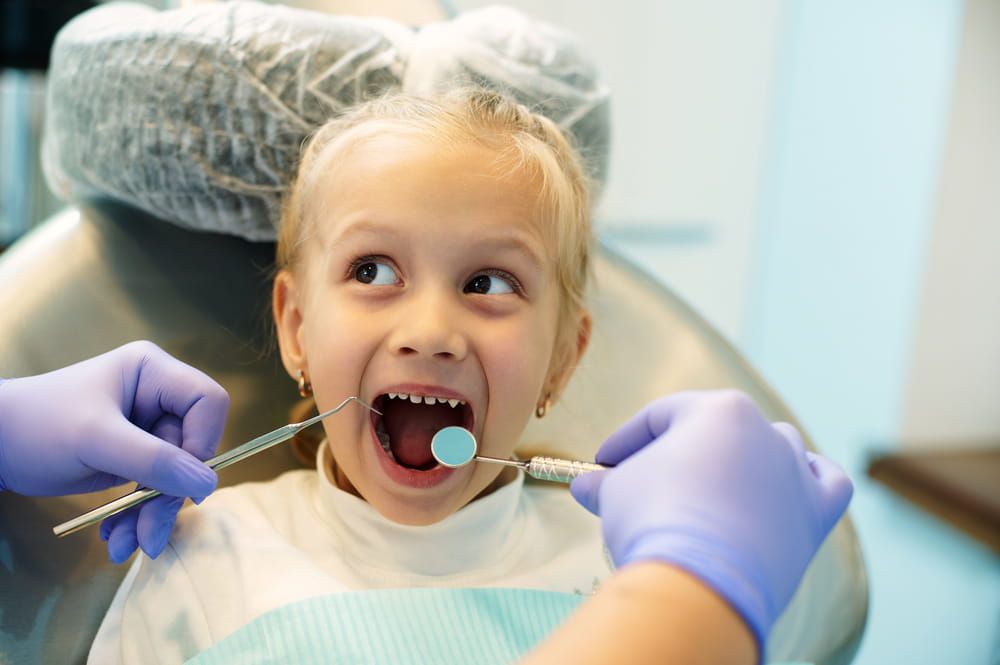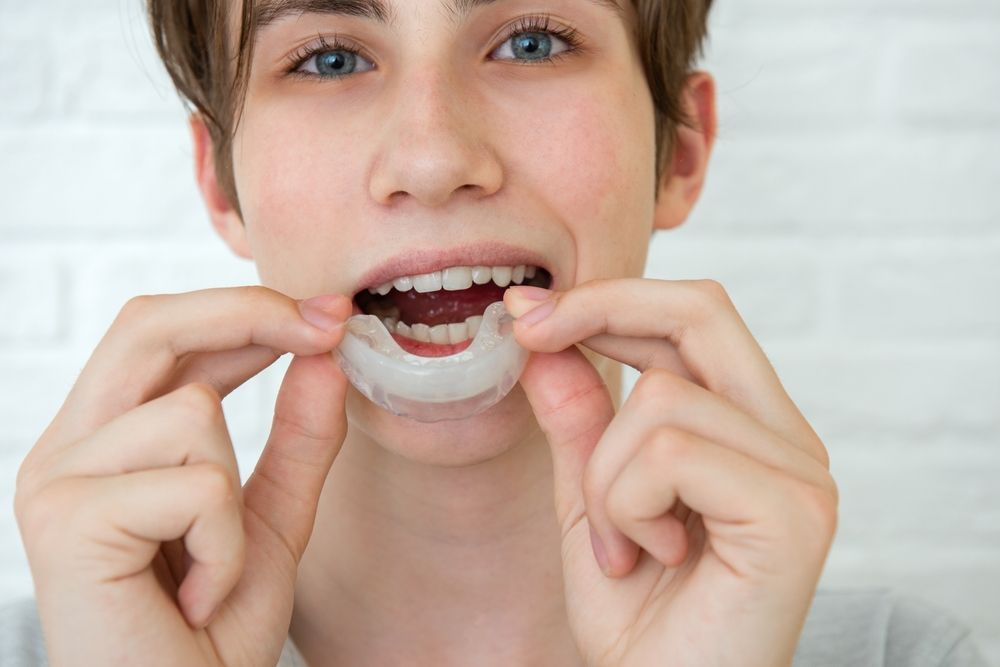When discussing children’s oral health, brushing, flossing, and regular dental visits are usually the first habits that come to mind. However, sleep and relaxation routines also play a crucial role in maintaining a healthy smile. Children who have trouble winding down or who experience disturbed sleep may develop habits like teeth grinding or mouth breathing, both of which can negatively impact dental health. Dr. Shawn Taheri, DDS, at Dentistry for Children and Young Adults in San Jose, CA, highlights that helping children sleep soundly can reduce enamel wear, prevent dry mouth, and support better overall oral hygiene.
Poor sleep quality can lead to an increase in nighttime oral health risks. Children who are restless or stressed may clench their jaws unconsciously during sleep, leading to jaw discomfort and worn-down teeth. Additionally, breathing through the mouth overnight can dry out saliva, which is essential for neutralizing acids and protecting teeth from cavities. Implementing teeth-friendly habits around bedtime ensures that children not only rest better but also wake up with healthier mouths.
Establishing a Consistent Bedtime Routine
A predictable, soothing bedtime routine is one of the most powerful ways to promote healthy sleep and protect your child’s oral health. Routine helps children transition from busy daytime activities to a restful night’s sleep, allowing their bodies to recharge and maintain healthy oral function. A well-structured routine also reinforces good oral hygiene practices, ensuring that brushing and flossing are never skipped in the rush toward bedtime.
Effective bedtime routines typically start at least 30 to 60 minutes before the intended sleep time. Activities should be calming and predictable. This not only signals the body that it’s time to wind down but also decreases the chance of nighttime awakenings. Parents can help by setting consistent bedtimes, limiting electronic use close to bedtime, and keeping the environment dim and quiet after brushing teeth. Following a nightly checklist can also make bedtime smoother and more effective.
Teeth-Friendly Nighttime Habits to Implement
Incorporating certain teeth-friendly practices into your child’s nighttime routine can make a measurable difference in their dental health. While good brushing and flossing are essential, a few additional habits can protect children’s teeth overnight. Here are specific habits to consider:
- Brushing and flossing before bedtime: Ensure all food particles and plaque are removed to prevent overnight decay.
- Avoiding nighttime snacks and drinks: After brushing, children should avoid any food or sugary drinks. Water is the only recommended beverage if needed.
- Encouraging nose breathing: If mouth breathing is an issue, consult a pediatric dentist or ENT specialist, as chronic mouth breathing can dry the mouth and harm teeth.
- Using fluoride toothpaste: Helps to strengthen tooth enamel and protect against cavities overnight.
- Maintaining a humid bedroom environment: Especially for children prone to allergies or congestion, a humidifier can help keep oral tissues moist.
Implementing these steps can significantly lower the risk of dental issues and help maintain a healthier smile well into adulthood.
Understanding the Role of Sleep Disorders in Oral Health
Sleep-disordered breathing, including conditions like obstructive sleep apnea, can have serious implications for a child’s dental and overall health. Mouth breathing, snoring, and restless sleep are often symptoms of an underlying airway issue that may impact jaw growth, dental alignment, and enamel health. Dr. Shawn Taheri carefully assesses signs of sleep-disordered breathing during dental visits and may recommend additional evaluations if concerns are present.
Sleep apnea and other conditions can cause a child to grind their teeth at night—a phenomenon known as bruxism. Left untreated, bruxism can result in flattened, fractured, or worn-down teeth. In children with special needs, sleep issues can be even more complex, making collaboration between healthcare providers essential. Early intervention, whether through dental appliances, referrals to sleep specialists, or behavioral modifications, can dramatically improve a child’s sleep quality and dental outcomes.
Creating an Environment That Supports Better Sleep
Setting up a sleep-conducive environment plays a critical role in promoting both good sleep and oral health. The sleep environment should be cool, quiet, and free from distractions. Removing electronics from the bedroom, using blackout curtains, and maintaining a comfortable room temperature can help a child relax and fall asleep faster.
Parents can also encourage comfort by establishing calming rituals. Gentle activities such as reading a story, playing soft music, or practicing light stretches can ease the transition to sleep without stimulating the child too much. Dr. Taheri often recommends that parents pair these calming activities with oral hygiene routines, reinforcing the importance of brushing and flossing before bed. When children learn that taking care of their teeth is part of feeling good and winding down, the habit becomes a natural and positive part of their daily lives.
How Pediatric Dentists Support Healthy Sleep Habits
Pediatric dentists are uniquely positioned to identify early signs of dental issues related to sleep and to guide families toward solutions. During a regular dental exam, Dr. Shawn Taheri assesses not only a child’s teeth and gums but also looks for indicators of grinding, mouth breathing, and improper oral posture. These signs can be critical early warnings of larger health problems.
By partnering with parents, Dr. Taheri helps create individualized plans to improve oral care habits at home. For children with special needs, extra support and modifications to the bedtime routine may be necessary. Dr. Taheri’s experience in pediatric and special needs dentistry means families receive advice tailored to their child’s unique challenges and strengths, helping to create lasting positive outcomes for both dental and overall health.
Promoting Long-Term Healthy Habits
Teaching children the value of sleep and oral care early in life lays the foundation for healthier futures. As children grow, their ability to manage their own bedtime routines and dental hygiene improves, fostering independence and responsibility. Reinforcing good habits with praise and consistency ensures that children see oral health as a positive, achievable part of their daily lives.
In children with special needs, patience and customized approaches are essential. Parents may need to use visual schedules, rewards systems, or other supportive strategies to reinforce bedtime routines and dental care. With consistent guidance and encouragement from both parents and dental providers, all children can build the skills needed to protect their oral health as they sleep peacefully each night.
Resources:
- Mindell, J. A., & Williamson, A. A. (2018). Benefits of a bedtime routine in young children: Sleep, development, and beyond. Sleep Medicine Reviews.
- Kaur, H., & Singh, A. (2017). Mouth breathing: Adverse effects on children’s health and dentofacial development. International Journal of Clinical Pediatric Dentistry.
- American Academy of Pediatric Dentistry. (2022). Policy on Obstructive Sleep Apnea.





